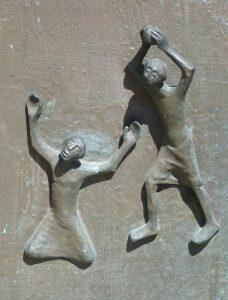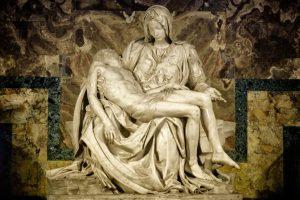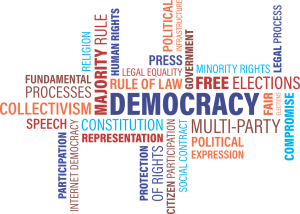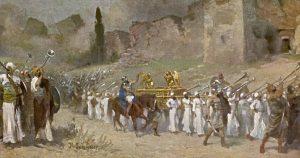 Tips from the Apostle Paul given to the Philippians
Tips from the Apostle Paul given to the Philippians
Anxiety is no fun. We all experience it at times in our lives if there is stress or a perceived threat. Anxiety is a feeling of fear, unease, or worry. While occasional anxiety is a normal part of life, chronic or excessive anxiety can interfere with daily activities and impact our overall well-being. If we look at the world today, everyone has good reason to be a little anxious now and then.
(Philippians 4:6-7)1NIV New International Version Translations – “Do not be anxious about anything, but in every situation, by prayer and petition, with thanksgiving, present your requests to God. And the peace of God, which transcends all understanding, will guard your hearts and your minds in Christ Jesus.”
The Apostle Paul gives some very specific advice in his letter to the Philippians. While the exact external pressures that the Philippians were facing during the time Paul wrote his letter from prison are not explicitly detailed in the letter to them, scholars suggest that the Philippian Christian community likely encountered persecution, social challenges due to their commitment to different religious and cultural norms, a lack of unity, and economic challenges. It sounds like our world today, doesn’t it? In the letter to the Philippians, Paul expresses his deep care for the Philippians and provides them with practical guidance on how to survive their challenges. Part of Paul’s broader message of rejoicing in the Lord, maintaining unity, and finding contentment in all circumstances was directed at turning off anxiety.
Let’s look at this advice and see if there is some help in how to deal with anxiety. Turning off anxiety is not a straightforward process, as it’s a complex emotional response that often requires us to do more than just pray about our concerns. To begin with, anxiety affects the body both physically and mentally. Both the body and the mind should be considered. Good, safe physical activity can soothe both the body and the mind. Sleep is also important. Even Jesus felt the need to rest. In the Gospel Mark:
Mark 6:30–32: “The apostles gathered around Jesus and reported to him all they had done and taught. Then, because so many people were coming and going that they did not even have a chance to eat, he said to them, ‘Come with me by yourselves to a quiet place and get some rest.’ So, they went away by themselves in a boat to a solitary place.”
In other parts of the Gospels, there are references to Jesus withdrawing to desolate places or spending time in prayer, suggesting moments of rest and spiritual renewal. While the Bible doesn’t provide detailed accounts of Jesus’ daily routines, these passages indicate that He did value and prioritize times of rest and solitude. Jesus recognized the need for rest and solitude, both for Himself and His disciples, after they had been actively engaged in ministry. Restful sleep requires one to know and trust in God’s protection.
(Psalm 4:8): “In peace I will lie down and sleep, for you alone, Lord, make me dwell in safety.”
Taking time to reflect upon our salvation through God’s grace and Jesus’ sacrifice on the cross is the first step to the peace necessary for turning off anxiety.
(Matthew 11:28–30): “Come to me, all you who are weary and burdened, and I will give you rest. Take my yoke upon you and learn from me, for I am gentle and humble in heart, and you will find rest for your souls. For my yoke is easy, and my burden is light.”
The Apostle Paul goes further and begins to provide a formula for the elimination of anxiety.
(Philippians 4:8): “Finally, brothers and sisters, whatever is true, whatever is noble, whatever is right, whatever is pure, whatever is lovely, whatever is admirable—if anything is excellent or praiseworthy—think about such things.”
Paul’s advice is to control what we think about. “But the things that come out of a person’s mouth come from the heart, and these defile them. For out of the heart come evil thoughts—murder, adultery, sexual immorality, theft, false testimony, slander” (Matthew 15:18–19). There is a direct connection between thoughts, actions, and anxiety. Guarding our thoughts is one aspect of controlling anxiety. In a litigious world overpowered by hateful media, it will take work to keep our focus on thoughts that align with God’s principles and values. Think of it as a race; Paul did!
(Philippians 3:13–14): “Brothers and sisters, I do not consider myself yet to have taken hold of it. But one thing I do: Forgetting what is behind and straining toward what is ahead, I press on toward the goal to win the prize for which God has called me heavenward in Christ Jesus.”
In the above verses, the Apostle Paul uses the metaphor of a race to convey the idea of pressing on toward the goal of eternal life with Christ. It is those challenges and distractions that cause our anxiety. This tip from Paul is to keep life’s focus on the eternal goal. The relationship between thoughts and emotions is a fundamental aspect of managing anxiety. This brings us to Paul’s final tips:
(Philippians 4:12-13) “I know what it is to be in need, and I know what it is to have plenty. I have learned the secret of being content in any and every situation, whether well fed or hungry, whether living in plenty or in want. I can do all this through him, who gives me strength.”
Paul tells us to think about the “good and bad,” approaching the present without judgment. He says that he has identified the negative or irrational thoughts that contribute to his anxiety. This helps him recognize and reframe any erroneous thinking patterns, allowing him to replace catastrophic thoughts with more realistic and positive ones. Contemplation places Paul in a calm place where he can reflect on problems with a more positive mindset. This forms his beneficial habit of gratitude, focusing on positive aspects of his life. Paul takes time to acknowledge and appreciate what is going well. He ends his metaphor of the race with a joyous victory, the “Finish Line,” “Eternity with Christ Jesus.”
(Romans 12:2): “Do not conform to the pattern of this world but be transformed by the renewing of your mind. Then you will be able to test and approve what God’s will is—his good, pleasing, and perfect will.”
Our world lives and breeds anxiety. Did you ever notice that most fraud techniques are based on elevating anxiety? Look for a sense of urgency or fear. If you see it, step back quickly. Politics is based on fear. “Our democracy will end” or “our planet will cease to exist!” These are two of my favorite anxiety builders. Yet, we should be comforted by our Bible, knowing that no one knows except for God Himself.
(Matthew 24:36) “But about that day or hour no one knows, not even the angels in heaven, nor the Son, but only the Father.”
Summary
The Apostle Paul is simply telling the Philippians to think about the good and bad and gain a perspective that is realistic in life. Know that their goals are not based in this world but should rest with their Savior, Christ Jesus. Paul was reminding them to turn to God in prayer, with thanksgiving, and trust that God’s peace would guard their hearts and minds. By encouraging them to bring their concerns to God in prayer, Paul aimed to strengthen their faith and reliance on God’s provision and care, even in the face of difficulties. To translate this for us today, it might sound like “Turn off the news, stay out of social media, be wary of politicians, and, above all, stop the hate.” This is God’s world!
(Psalm 94:19): “When anxiety was great within me, your consolation brought me joy.”
Contemplations
- Make a list, mentally or on paper, of the things that might make you anxious.
- Ideas to Explore: Things like the world at war, educating children, the border and immigration, elections, your health, your financial condition, the environment, etc.
- Now, from this list, check those you are in control of.
- Ideas to Explore: Only a few are things you can control. Maybe how much you spend, whether you take care of your health, the hatred you might be harboring toward people, etc.
- Take stock of your life and list the good things.
- Ideas to Explore: A family, enough to eat, transportation, a home to live in—anything that brings a smile to your face.
- Paul suggested that you have a balanced list (life) and not focus on the negative. Did you?
- Ideas to Explore: Is one list too big? Do you see the blessings in life?
- The concept of contemplation is to carry your thoughts to another place or time. Take yourself to eternity. What would bring you eternal joy?
- Ideas to explore: From which list did you find the most joyful thoughts coming? Then, is your joy based on Christ’s promise of eternity? Is your joy still based on a temporal world?
- Which list is your prayer list—the one that makes you anxious or the one that brings you joy?
- Ideas to Explore: Are the anxieties of this world controlling the joys of the next?
- 1NIV New International Version Translations








